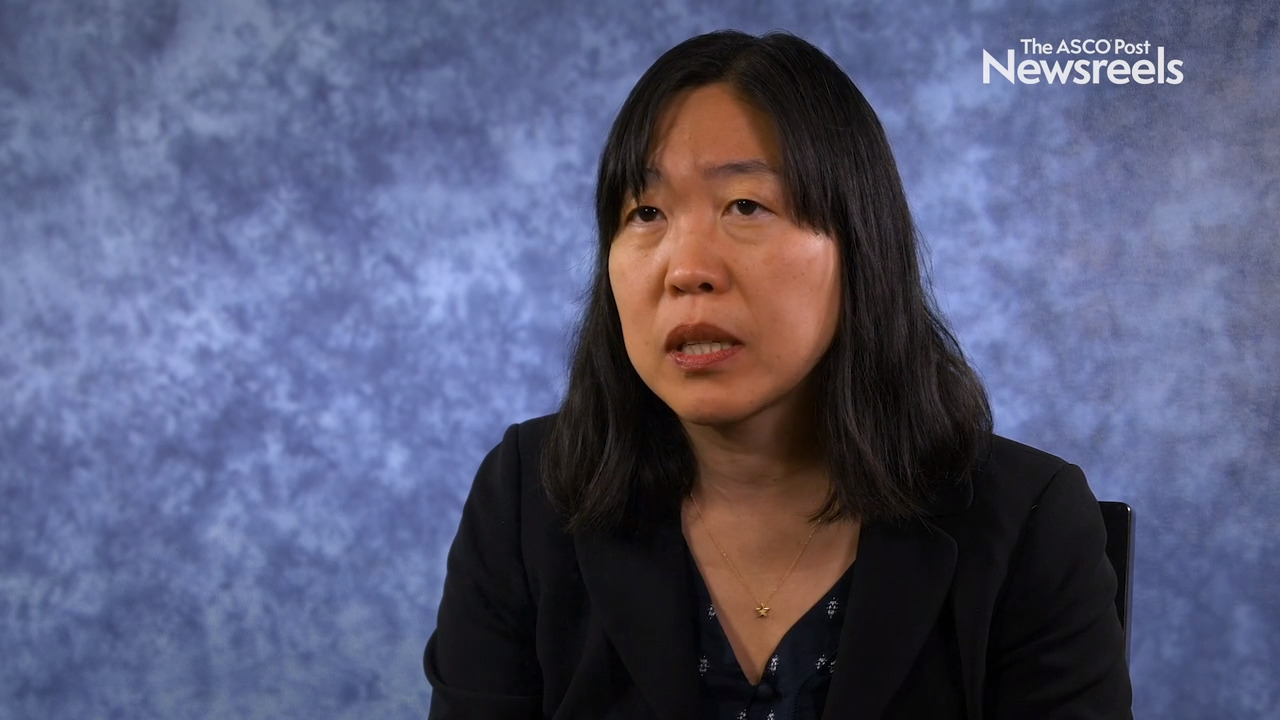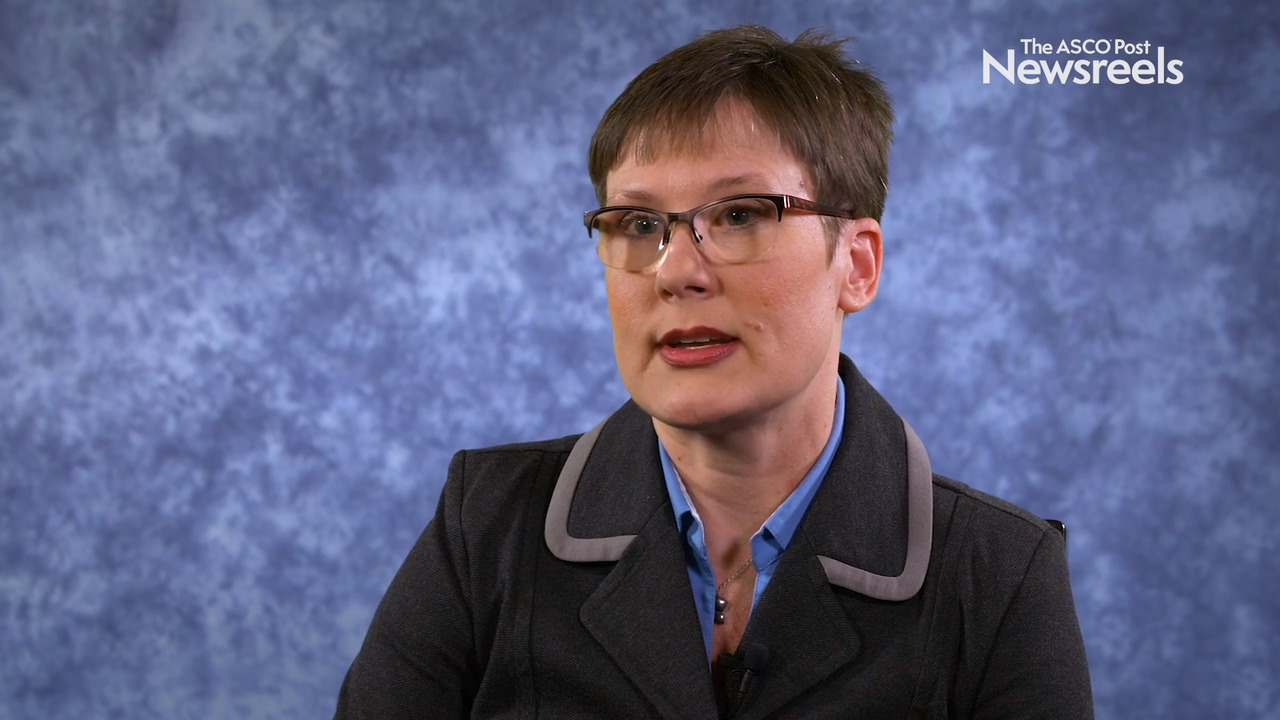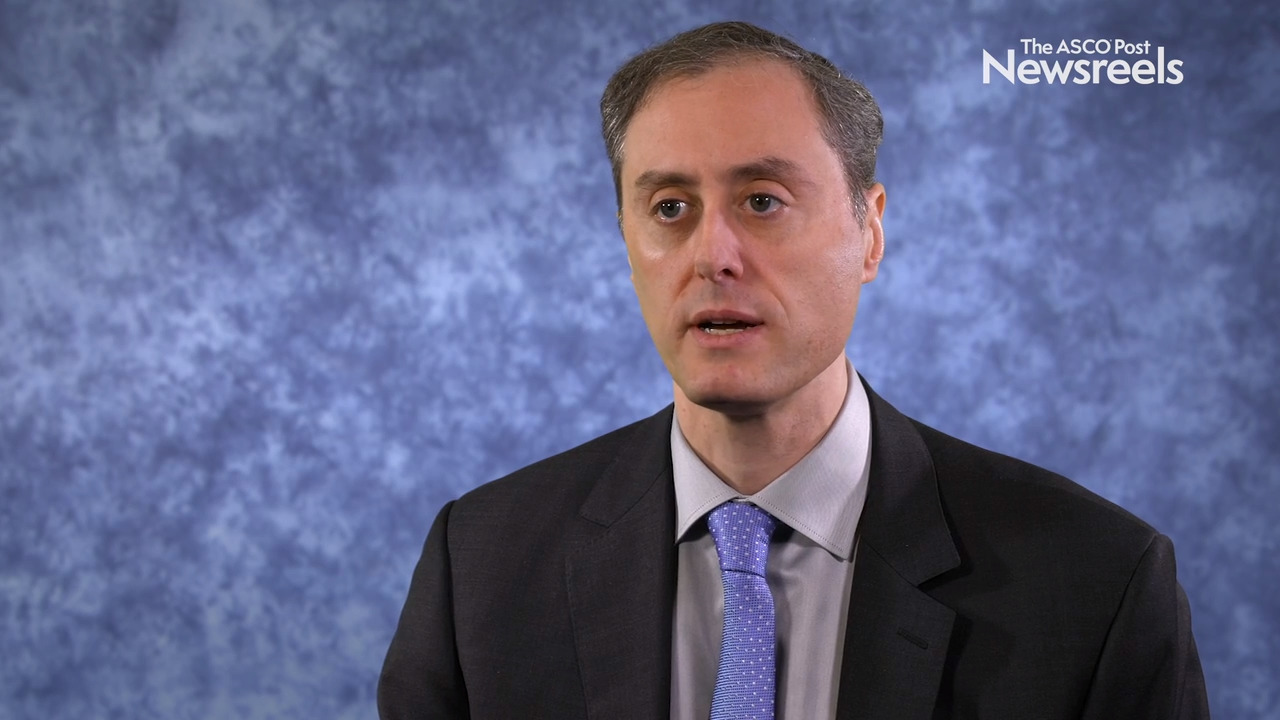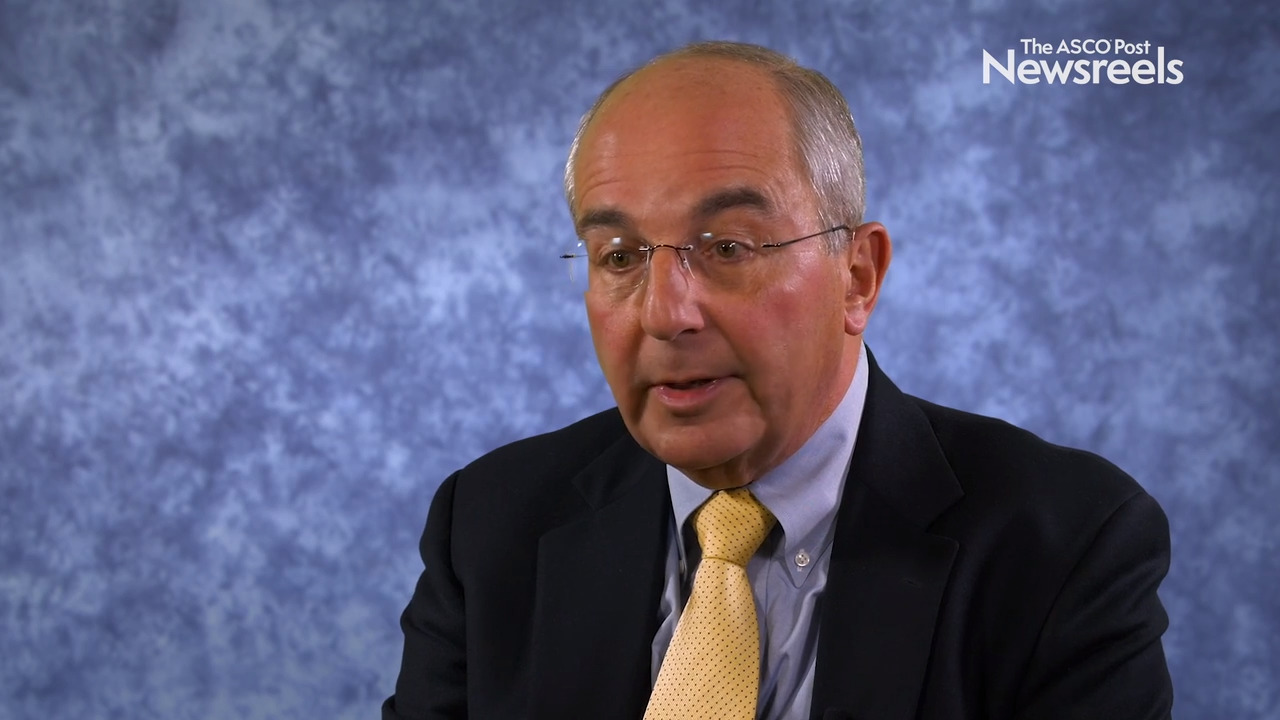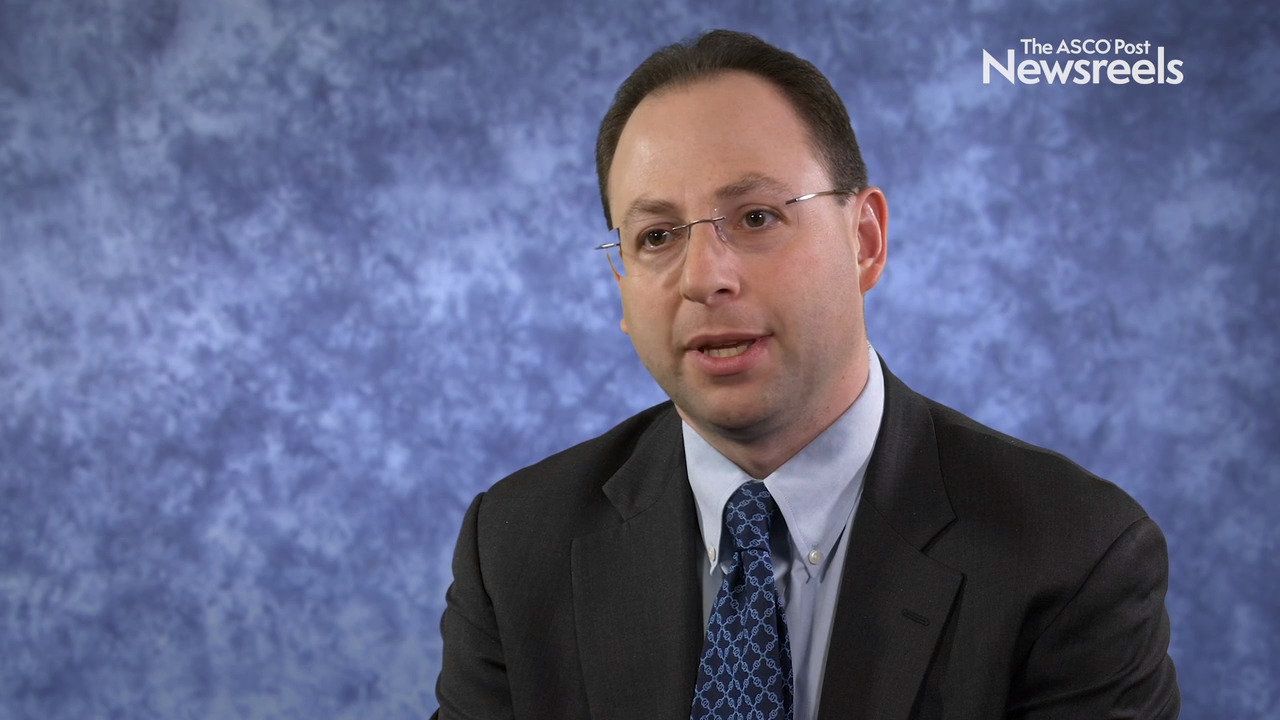Gopal K. Bajaj, MD, MBA, on Reducing Opioid Use in Patients With Head and Neck Cancer Undergoing Radiotherapy
2020 Multidisciplinary Head and Neck Cancers Symposium
Gopal K. Bajaj, MD, MBA, of the Inova Schar Cancer Institute, discusses the results of a small study that showed prophylactic gabapentin can be safely and effectively used to significantly reduce pain and the use of opioids in patients undergoing radiotherapy or chemoradiotherapy for head and neck squamous cell carcinoma.
The ASCO Post Staff
Sue Sun Yom, MD, PhD, of the University of California, San Francisco, talks about the variety of evolving ways to deintensify radiation therapy, the critical need to counsel patients on the risks and benefits, and the ethical importance of respecting patient preferences in choosing their cancer therapies.
The ASCO Post Staff
Carryn M. Anderson, MD, of the University of Iowa Hospital, discusses the investigational agent GC4419, previously shown to be safe and effective in decreasing the duration, incidence, and severity of oral mucositis in patients receiving concurrent cisplatin and radiation for oral cavity and oropharyngeal squamous cancers. The 2-year tumor outcome data suggest that GC4419 does not seem to compromise tumor control (Abstract LBA2).
The ASCO Post Staff
Jared Weiss, MD, of the University of North Carolina, Chapel Hill, discusses outcomes for patients with stage III or IV disease who are ineligible for the standard treatment of cisplatin plus radiotherapy. His data suggest that treatment with pembrolizumab/radiotherapy instead is tolerable, with improvements seen in progression-free and overall survival (Abstract LBA1).
The ASCO Post Staff
David Adelstein, MD, of the Cleveland Clinic, discusses the hypothesis that treatment can be de-intensified in patients with HPV-associated oropharyngeal cancer and a good prognosis.
The ASCO Post Staff
Jonathan D. Schoenfeld, MD, MPH, of Dana-Farber Cancer Institute and Brigham and Women’s Hospital, discusses phase II study results with the PD-1 inhibitor nivolumab or the combination of PD-1/CTLA-4 inhibition with nivolumab/ipilimumab in patients with newly diagnosed untreated oral cavity cancer (Abstract 1).
